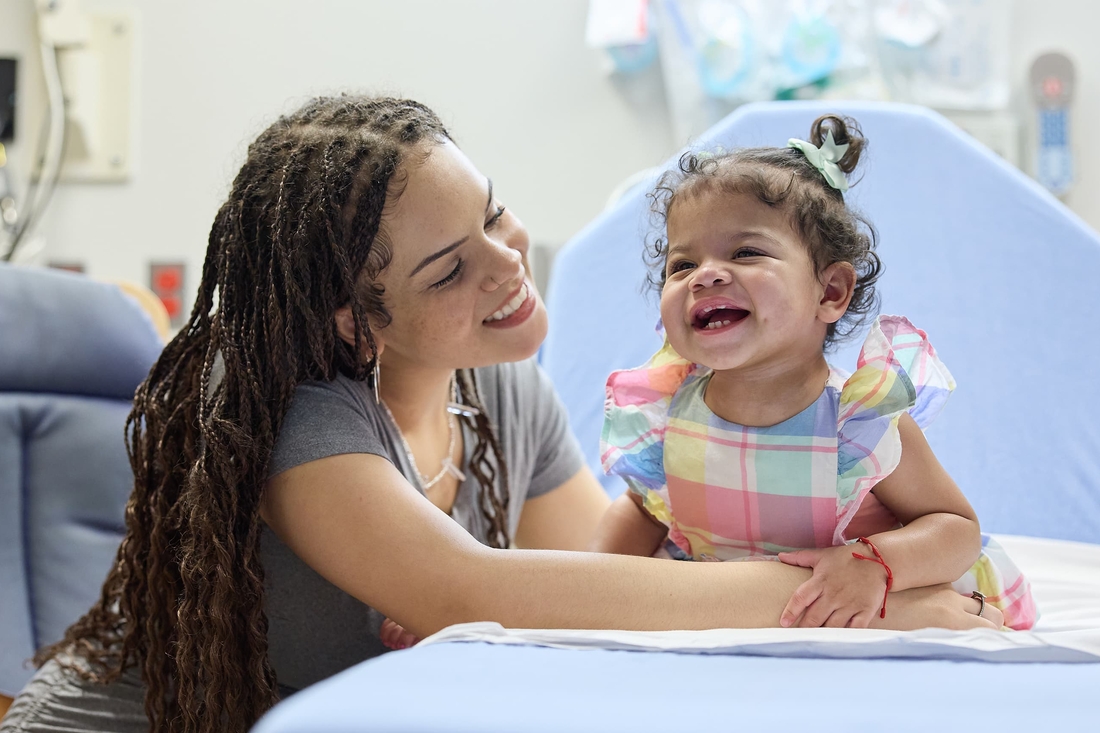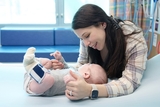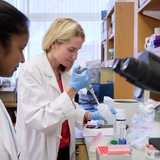Very Early Onset Inflammatory Bowel Disease (VEO-IBD) Program

Infants and young children diagnosed with inflammatory bowel disease (IBD) before age 6 often experience more severe and painful symptoms than older children or adults. In many cases, these younger patients – diagnosed with very early onset IBD (VEO-IBD) – do not respond to traditional IBD treatments. Instead, they require specialized evaluation and targeted therapies.
At the VEO-IBD Program, your child will receive care from world-leading experts. Our team treats one of the largest VEO-IBD clinical populations in the world. We continue to actively investigate the genetic and immunologic causes of IBD in this younger, and especially vulnerable, population of children. Based on our research, clinical trials and experience, we have developed several individualized, targeted therapies to improve our patients’ quality of life.
How we serve you
We offer a variety of specialized programs and clinical services to children with VEO-IBD and their families.
Conditions we treat
Our program is dedicated solely to treating young children with very early onset inflammatory bowel disease (VEO-IBD).

Why choose us for VEO-IBD treatment
We offer one of the largest and most comprehensive clinical and research programs in the United States dedicated to caring for children with VEO-IBD. We provide patients with personalized evaluation, advanced diagnostic tests and individualized treatments.

Meet your team
Your child's team includes doctors from several areas of the hospital who collaborate to provide the best possible care for children with VEO-IBD. Gastroenterologists work closely with experts in immunology, genetics and the gut microbiome.

Our research
VEO-IBD requires significant investigation before its causes are fully understood. We use advanced genetic sequencing technology to identify the genes that may play a role, then work to develop personalized therapies to treat the disorder.

Very Early Onset Inflammatory Bowel Disease (VEO-IBD) Program resources
We have created resources to help you find answers to your questions about IBD in very young children and feel confident with the care you are providing your child.
Events

Monthly IBD Education Classes - Oct 2025
Wednesday, Oct 01, 2025

Monthly IBD Education Classes - Nov 2025
Wednesday, Nov 05, 2025

Preparing for your child’s appointment
Whether you travel across town or across the country to reach the VEO-IBD Program, our clinical and research teams are prepared to support you every step of the way and ensure you have the resources you need to care for your child.

Resources for professionals
Everything you need to support your patient’s health, created and updated by our CHOP community of experts.
Your donation changes lives
A gift of any size helps us make life-saving breakthroughs for children everywhere.

